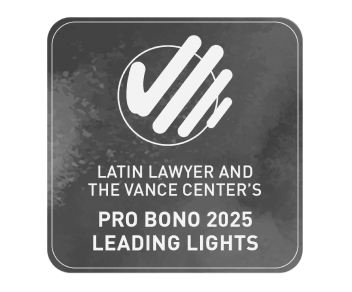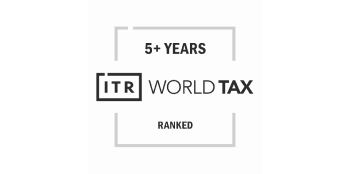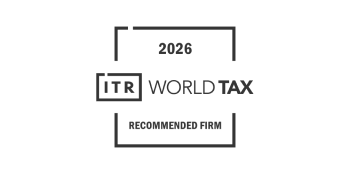


On July 16, 2025, the Decree amending and adding various provisions to the Federal Law for the Prevention and Identification of Transactions with Illicit Proceeds (“LFPIORPI”), as well as Article 400 Bis of the Federal Criminal Code (the “Reform”), was published in the Mexican Official Gazette.
This Reform, approved by the Mexican Congress of the Union and enacted by the President of the Mexican Republic, represents a significant advancement in strengthening the national legal framework for the prevention, detection, and prosecution of transactions involving illicit proceeds.
Furthermore, it constitutes a significant update in the investigative tools of corporate criminal liability, by which company’s must observe a higher standard of organizational control for crime prevention, and whose non-compliance may result in sanctions equivalent to up to 13.6 years of the company’s net income.
• Definitions and Obligated Parties:
Key definitions have been clarified and expanded, including those of “Beneficial owner,” “Politically Exposed Person,” and “Business Relationship.”
• Beneficial Owner:
The Beneficial Owner is now limited exclusively to natural persons or groups of natural persons, and the ownership threshold for its identification is reduced from 50% to 25%.
The Reform expands and clarifies the concept of Beneficial Owner, equating it with Final Beneficiary and Actual Owner, and establishes an obligation to identify and register the natural persons who ultimately benefit from or control a legal entity, even if they are not direct shareholders.
This change reinforces transparency and traceability, requiring companies to update their internal processes to comply with new obligations regarding identification and information retention, thus increasing accountability and scrutiny over the true ownership of assets.
• New vulnerable activities:
The Reform significantly broadens the list of activities classified as vulnerable, requiring new sectors and economic actors to implement stricter controls for client identification, information retention, and transaction reporting, including the following:
1. Commercialization and Exchange of Virtual Assets
The scope of the vulnerable activity related to the exchange and commercialization of virtual assets by non-financial entities is expanded. Entities that habitually and professionally offer virtual asset exchange services, either within Mexico or abroad involving Mexican nationals, must comply with stringent obligations regarding identification, information retention, and reporting on the originator, recipient, and beneficial owner of the transactions.
2. Receipt of Funds for Real Estate Developments
The receipt of funds intended for real estate developments—i.e., projects for the construction of properties or subdivision of plots for sale or lease—is now classified as a vulnerable activity.
3. Trusts as Obligated Parties
It is clarified that trusts may engage in vulnerable activities and are therefore subject to all obligations set forth in the LFPIORPI, including the identification of the beneficial owners and the submission of notices to the authorities.
4. Issuance, Commercialization, and Funding of Cards and Other Monetary Instruments
Obligations are strengthened for those issuing, commercializing, or funding service cards, credit cards, prepaid cards, and other monetary value storage instruments.
5. Transfer or Creation of Real Property Rights
The monetary threshold for the transfer or creation of real rights over real estate subject to reporting by notaries is reduced, requiring the reporting of lower-value transactions that were previously exempt.
6. Incorporation of Legal Entities and Trusts
New reporting obligations are introduced concerning the incorporation of legal entities and trusts, particularly regarding the identification and registration of their beneficial owners.
7. Armoring, Custody, and Transportation of Valuables
Obligations are reinforced, including the possibility of permit revocation for those providing armoring, custody, or valuables transportation services in cases of non-compliance.
8. Customs Clearance without Customs Agents
Authorization may be revoked for individuals or legal entities promoting customs clearance without the involvement of a customs agent or agency if they fail to comply with anti-money laundering obligations.
9. Games and Raffles
Permit revocation is contemplated under the Gambling and Raffles Federal Act (Ley Federal de Juegos y Sorteos), for non-compliance with LFPIORPI obligations, increasing oversight in this high-risk sector
• Enhanced Obligations:
Obligations are reinforced regarding client and beneficial owner identification and verification, information retention for at least ten years, implementation of automated monitoring mechanisms, annual audits (internal or external, depending on risk level), and the preparation of internal policies and procedure manuals.
• Obligations for Commercial Companies:
All commercial companies, regardless of whether they engage in covered activities, must report the transfer of ownership or creation of rights over equity securities or partnership interests, and must register their beneficial owners in the electronic system of the Ministry of Economy.
• Supervisory and Sanctioning faculties:
The supervisory and enforcement faculties of the Ministry of Finance and Public Credit (SHCP), the Financial Intelligence Unit (UIF), the National Guard, and the Ministry of Security and Citizen Protection are expanded, including the authority to revoke permits and impose administrative and criminal sanctions.
• Sanctions:
Penalties for non-compliance are tightened, including fines, permit revocation, and criminal sanctions for providing false or illegible information.
Failure to comply with the new organizational control standards for the prevention of transactions involving illicit proceeds exposes legal entities to corporate criminal liability, with sanctions of up to 13.6 years’ worth of the company’s net income.
A one-time exemption from penalties is established for entities that voluntarily comply with their obligations and acknowledge their failure prior to the commencement of an official inspection. Entities that have previously benefited from this exemption may still obtain a reduction of up to 50% in fines if they regularize their compliance and acknowledge the breach before the initiation of sanctioning proceedings.
• Inter-institutional collaboration:
Inter-institutional coordination is reinforced for access to registries and databases, and both the SHCP and the UIF are recognized as victims or offended parties in proceedings related to the relevant offenses.
• Transitional regime:
The Reform enters into force the day following its publication, with adaptation periods and a twelve-month deadline for the issuance of general administrative rules.
For any questions or comments regarding this alert, do not hesitate to contact our expert team.
Awards














